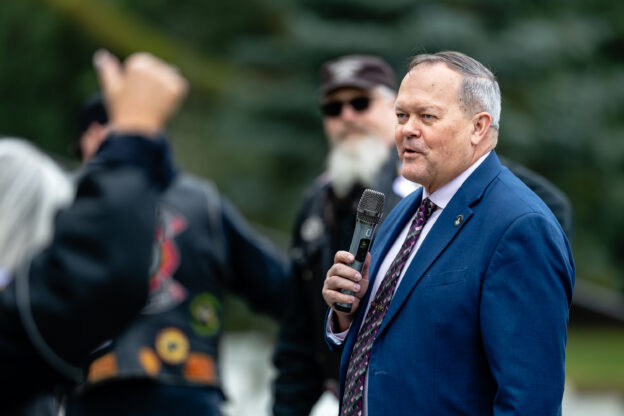Sen. Matt Boehnke, R-Kennewick/Courtesy of the Washington State Senate
In early July, I spoke at the Tri-City Regional Chamber of Commerce’s Regional Advocacy Roundtable: Behind the Bill – How Policy Shapes Your Energy Costs—a timely forum examining how state-level decisions are directly influencing rising utility bills and the future of energy affordability in the Tri-Cities and across Washington.
The event brought together local business leaders, utility stakeholders, and policymakers for a candid and constructive discussion on energy legislation, rate impacts, and policy opportunities to ensure reliable, cost-effective power for homes and industries.
Energy policy is no longer something abstract. It’s showing up in monthly bills, gas prices, and infrastructure projects that affect every part of our lives. We need a balanced approach—one that supports innovation, protects affordability, and keeps reliability front and center.
During my presentation, I highlighted both successful and concerning legislation from the 2025 session. I warned about the long-term effects of HB 1409, which accelerates Washington’s Low Carbon Fuel Standard despite the lack of a mature biofuel market—potentially adding up to 77 cents per gallon at the pump by 2035.
I also raised red flags about several failed bills that could return in future sessions. For example, SB 5466 would have handed the state new eminent domain powers to site transmission lines, potentially overriding local authority and complicating permitting. Another bill, SB 5360, would have dramatically increased litigation and compliance costs for energy companies under new environmental enforcement standards.
On the positive side, I pointed to several bipartisan wins that support smarter energy investments, including his own legislation—SB 5445—which encourages the use of distributed energy resources to help utilities meet renewable energy targets more flexibly.
I also championed the long-overdue passage of HB 1912, which finally exempts agricultural fuels from the Climate Commitment Act, and HB 1990, which enables utilities to lower consumer costs through bond securitization during disasters or emergencies.
Additionally, I mentioned innovative proposals that didn’t pass this year but deserve renewed attention—like his SB 5091 to de-link Washington from California’s vehicle emissions standards and SB 5640, which would require proof of adequate water supply before siting new energy facilities.
The good news is we’re seeing more awareness around these issues. But we need continued engagement from communities like the Tri-Cities to Olympia. Events like this roundtable are key to keeping that conversation grounded in the real-world impacts.
As Washington continues to wrestle with the costs and complexity of its energy transition, I reaffirm my commitment to pragmatic energy solutions that protect consumers, empower innovation, and ensure a stable energy future for Eastern Washington and beyond.











